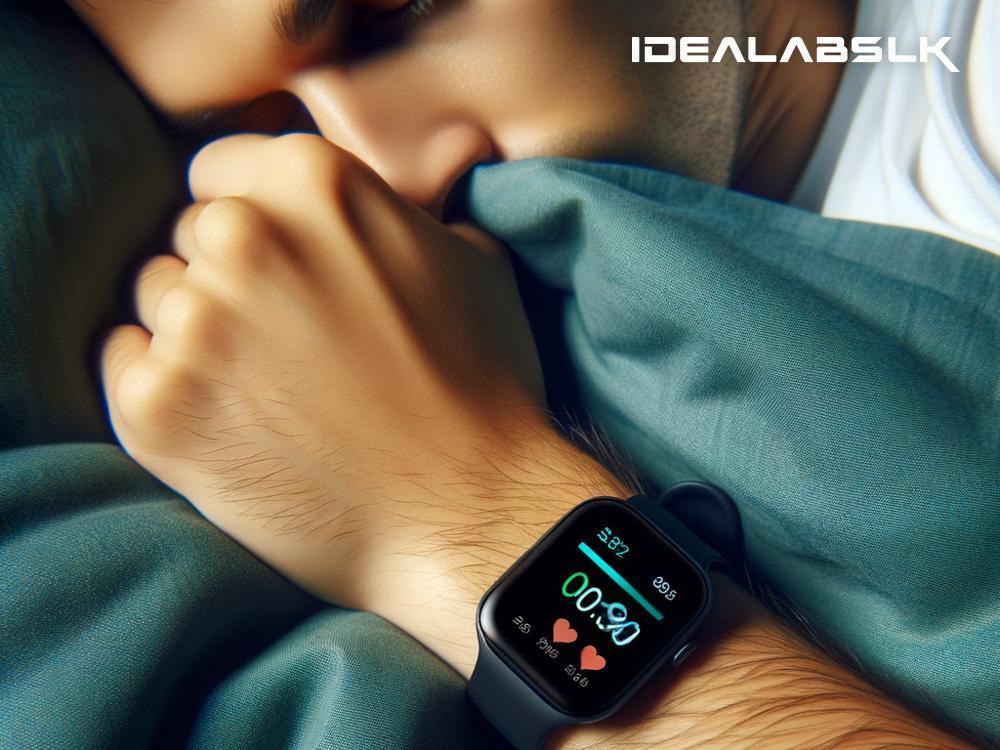Unlocking Better Sleep: How AI Transforms Wearable Devices for Night-Time Monitoring
In today's fast-paced world, quality sleep has sadly become a luxury that many of us constantly chase. Amid our busy schedules and the constant buzz of technology, it's no surprise that achieving a peaceful slumber feels more elusive than ever. This is where the magic of technology, specifically Artificial Intelligence (AI), steps in, offering us innovative ways to improve our sleep quality through wearable devices. But how does AI work in these gadgets, and how exactly can it enhance our sleep monitoring? Let's demystify this intriguing intersection of tech and health.
A Glimpse into AI and Wearable Devices
Before diving into the specifics, let's understand what AI and wearable devices entail. AI, in simple terms, refers to machines programmed to think and make decisions mimicking human intelligence. These decisions are based on data analysis, pattern recognition, and learning from past experiences.
On the other hand, wearable devices are electronic technologies or gadgets that can be worn on the body as accessories or parts of clothing. They've been around for a while but have significantly evolved, thanks to advancements in AI. They now possess smarter capabilities, especially in monitoring various aspects of health, including sleep patterns.
The Role of AI in Sleep Monitoring Wearables
Wearable devices, such as smart watches and fitness trackers, have incorporated AI algorithms to take sleep monitoring to a whole new level. But what role does AI play, and how does it refine the data these gadgets track?
1. Data Collection and Analysis
Firstly, AI enhances the way these devices collect and analyze data. Wearable devices monitor a range of biometric data, including heart rate, body temperature, and movement during sleep. AI algorithms process this massive amount of information to discern patterns and anomalies. For instance, by analyzing the frequency and type of your movements, AI can determine the sleep stage you're in - be it light sleep, deep sleep, or REM sleep.
2. Personalized Insights and Recommendations
The beauty of AI lies in its ability to adapt and learn from individual data. Over time, it learns your sleep habits and can offer personalized insights and recommendations. It could suggest the best time for you to go to bed based on your sleep cycles or recommend lifestyle changes to improve the quality of your sleep. This personalization aspect makes AI-powered wearables incredibly valuable for those seeking to enhance their sleep quality.
3. Predictive Analytics
Another fascinating feature of AI in sleep monitoring is its predictive capabilities. By analyzing long-term data trends, AI can forecast potential sleep disturbances or health issues before they become problematic. For example, a noticeable change in sleep patterns could indicate stress, anxiety, or even underlying health conditions, prompting users to take proactive steps.
The Impact of Improved Sleep Monitoring
The integration of AI in wearable devices for sleep monitoring has a profound impact on our well-being. By providing detailed insights into our sleep patterns, it empowers us to make informed decisions about our health. Improved sleep monitoring means we can address sleep issues before they escalate, leading to better overall health, increased productivity, and a higher quality of life.
Moreover, the data generated by these wearable devices can be invaluable for medical professionals. It offers a more detailed picture of a patient's sleep quality, which can be critical for diagnosing and treating sleep-related conditions.
The Future of Sleep Monitoring
As AI technology continues to advance, we can expect even more sophisticated sleep monitoring capabilities in wearable devices. Future iterations might be able to offer more nuanced analyses of sleep quality, integrate seamlessly with other smart home devices to create an optimal sleep environment, or even use biofeedback to actively improve sleep quality in real time.
Conclusion
The convergence of AI and wearable technology is revolutionizing the way we monitor and understand our sleep. By harnessing the power of AI, wearable devices are not just tracking our sleep patterns; they're providing personalized insights, forecasting potential issues, and ultimately, helping us achieve a rested state of being. As technology continues to evolve, the dream of consistently good sleep might just become a reality for us all. With every night’s sleep monitored and analyzed, we're one step closer to unlocking the secret to perfect slumber.

